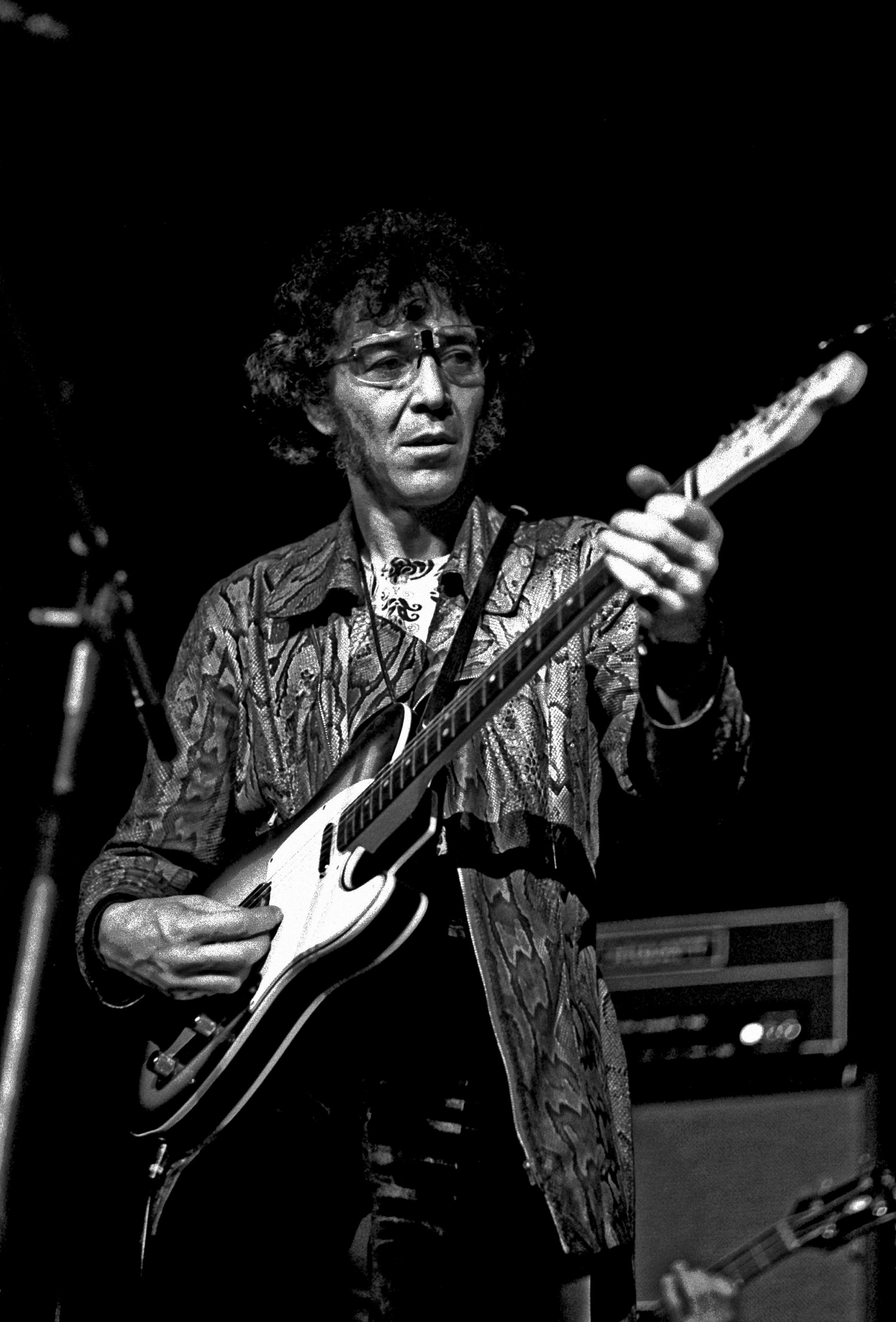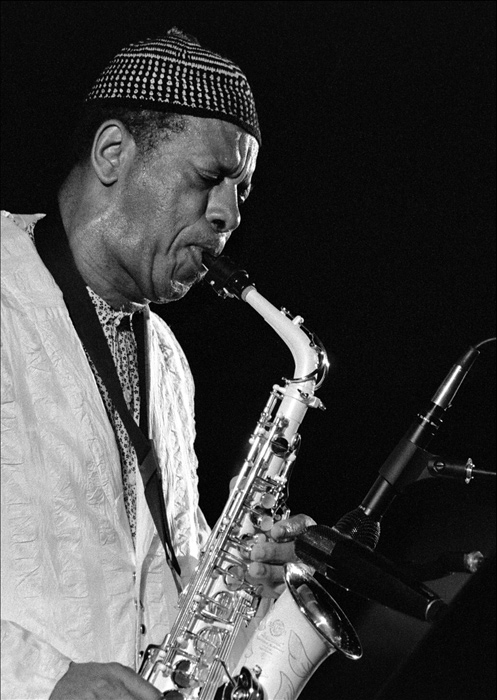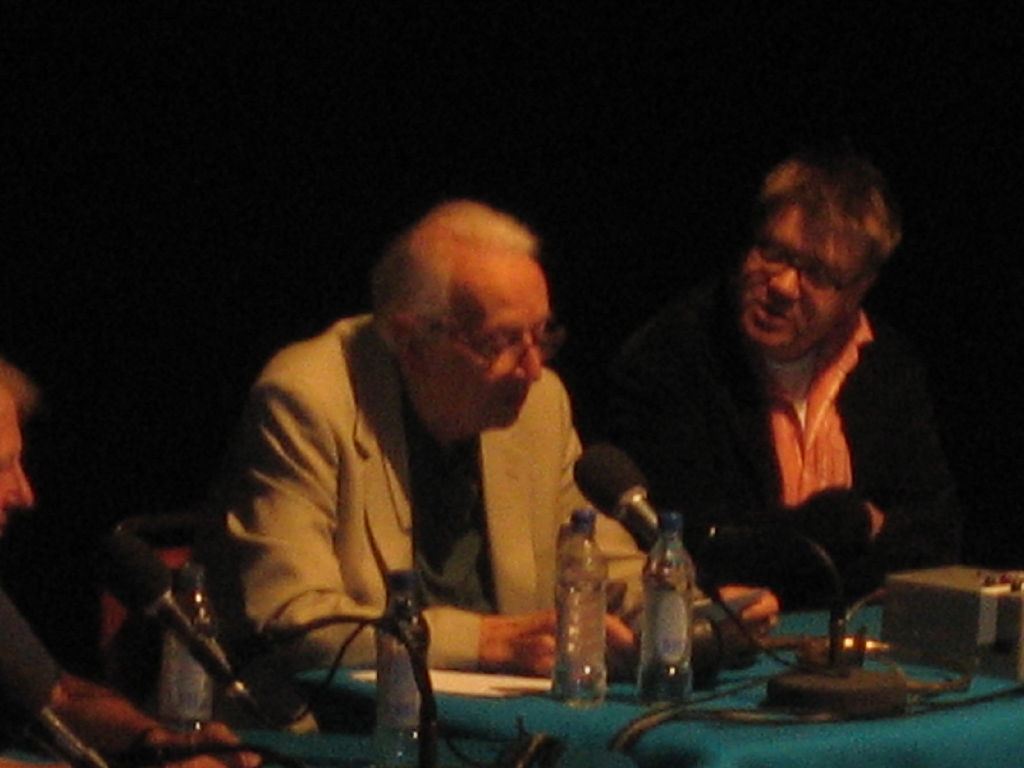|
Music Of The United Kingdom (1950s)
Music of the United Kingdom began to develop in the 1950s; from largely insular and derivative forms to become one of the leading centres of popular music in the modern world. By 1950 indigenous forms of British popular music, including folk music, brass and silver bands, music hall and dance bands, were already giving way to the influence of American forms of music including jazz, swing and traditional pop, mediated through film and records. The significant change of the mid-1950s was the impact of American rock and roll, which provided a new model for performance and recording, based on a youth market. Initially this was dominated by American acts, or re-creations of American forms of music, but soon distinctly British forms began to appear, first in the uniquely British take on American folk music in the skiffle craze of the 1950s with artists such as Lonnie Donegan, then in the beginnings of a folk revival that came to place an emphasis on national traditions and then in e ... [...More Info...] [...Related Items...] OR: [Wikipedia] [Google] [Baidu] |
Folk Music
Folk music is a music genre that includes traditional folk music and the contemporary genre that evolved from the former during the 20th-century folk revival. Some types of folk music may be called world music. Traditional folk music has been defined in several ways: as music transmitted orally, music with unknown composers, music that is played on traditional instruments, music about cultural or national identity, music that changes between generations (folk process), music associated with a people's folklore, or music performed by custom over a long period of time. It has been contrasted with commercial and classical styles. The term originated in the 19th century, but folk music extends beyond that. Starting in the mid-20th century, a new form of popular folk music evolved from traditional folk music. This process and period is called the (second) folk revival and reached a zenith in the 1960s. This form of music is sometimes called contemporary folk music or folk rev ... [...More Info...] [...Related Items...] OR: [Wikipedia] [Google] [Baidu] |
First World War
World War I (28 July 1914 11 November 1918), often abbreviated as WWI, was one of the deadliest global conflicts in history. Belligerents included much of Europe, the Russian Empire, the United States, and the Ottoman Empire, with fighting occurring throughout Europe, the Middle East, Africa, the Pacific, and parts of Asia. An estimated 9 million soldiers were killed in combat, plus another 23 million wounded, while 5 million civilians died as a result of military action, hunger, and disease. Millions more died in genocides within the Ottoman Empire and in the 1918 influenza pandemic, which was exacerbated by the movement of combatants during the war. Prior to 1914, the European great powers were divided between the Triple Entente (comprising France, Russia, and Britain) and the Triple Alliance (containing Germany, Austria-Hungary, and Italy). Tensions in the Balkans came to a head on 28 June 1914, following the assassination of Archduke Franz Ferdina ... [...More Info...] [...Related Items...] OR: [Wikipedia] [Google] [Baidu] |
Perry Como
Pierino Ronald "Perry" Como (; May 18, 1912 – May 12, 2001) was an Italian-American singer, actor and television personality. During a career spanning more than half a century, he recorded exclusively for RCA Victor for 44 years, after signing with the label in 1943. He recorded primarily vocal pop and was renowned for recordings in the intimate, easy-listening genre pioneered by multi-media star Bing Crosby. "Mr. C.", as he was nicknamed, sold millions of records and pioneered a weekly musical variety television show. His weekly television shows and seasonal specials were broadcast throughout the world. In the official RCA Records Billboard (magazine), ''Billboard'' magazine memorial, his life was summed up in these few words: "50 years of music and a life well lived. An example to all." Como received five Emmy Award, Emmys from 1955 to 1959, and a Christopher Award in 1956. He also shared a Peabody Award with good friend Jackie Gleason in 1956. He received a Kennedy Cente ... [...More Info...] [...Related Items...] OR: [Wikipedia] [Google] [Baidu] |
British Blues
British blues is a form of music derived from American blues that originated in the late 1950s, and reached its height of mainstream popularity in the 1960s. In Britain, it developed a distinctive and influential style dominated by electric guitar and made international stars of several proponents of the genre including the Rolling Stones, the Animals, Eric Clapton, Fleetwood Mac and Led Zeppelin. Origins American blues became known in Britain from the 1930s onwards through a number of routes, including records brought to Britain, particularly by African-American GIs stationed there in the Second World War and Cold War, merchant seamen visiting ports such as London, Liverpool, Newcastle upon Tyne and Belfast, and through a trickle of (illegal) imports. Blues music was relatively well known to British jazz musicians and fans, particularly in the works of figures like female singers Ma Rainey and Bessie Smith and the blues-influenced boogie-woogie of Jelly Roll Morton and Fats Wa ... [...More Info...] [...Related Items...] OR: [Wikipedia] [Google] [Baidu] |
Free Jazz
Free jazz is an experimental approach to jazz improvisation that developed in the late 1950s and early 1960s when musicians attempted to change or break down jazz conventions, such as regular tempos, tones, and chord changes. Musicians during this period believed that the bebop, hard bop, and modal jazz that had been played before them was too limiting. They became preoccupied with creating something new and exploring new directions. The term "free jazz" has often been combined with or substituted for the term "avant-garde jazz". Europeans tend to favor the term "free improvisation". Others have used "modern jazz", "creative music", and "art music". The ambiguity of free jazz presents problems of definition. Although it is usually played by small groups or individuals, free jazz big bands have existed. Although musicians and critics claim it is innovative and forward-looking, it draws on early styles of jazz and has been described as an attempt to return to primitive, often re ... [...More Info...] [...Related Items...] OR: [Wikipedia] [Google] [Baidu] |
Soho
Soho is an area of the City of Westminster, part of the West End of London. Originally a fashionable district for the aristocracy, it has been one of the main entertainment districts in the capital since the 19th century. The area was developed from farmland by Henry VIII in 1536, when it became a royal park. It became a parish in its own right in the late 17th century, when buildings started to be developed for the upper class, including the laying out of Soho Square in the 1680s. St Anne's Church was established during the late 17th century, and remains a significant local landmark; other churches are the Church of Our Lady of the Assumption and St Gregory and St Patrick's Church in Soho Square. The aristocracy had mostly moved away by the mid-19th century, when Soho was particularly badly hit by an outbreak of cholera in 1854. For much of the 20th century Soho had a reputation as a base for the sex industry in addition to its night life and its location for the headquarte ... [...More Info...] [...Related Items...] OR: [Wikipedia] [Google] [Baidu] |
Trad Jazz
Trad jazz, short for "traditional jazz", is a form of jazz in the United States and Britain in the 1930s, 1940s, 1950s and 1960s, played by musicians such as Chris Barber, Acker Bilk, Kenny Ball, Ken Colyer and Monty Sunshine, based on a revival of New Orleans Dixieland jazz, on trumpets, trombones, clarinets, tambourines, banjos, double basses, saxophones, Hammond organs, pipe organs, pianos, electric basses, guitars (typically electric guitars) and drums and cymbals, with a populist repertoire which also included jazz versions of pop songs and nursery rhymes. Beginnings of revival A Dixieland revival began in the United States on the West Coast in the late 1930s as a backlash to the Chicago style, which was close to swing. Lu Watters and the Yerba Buena Jazz Band, and trombonist Turk Murphy, adopted the repertoire of Joe "King" Oliver, Jelly Roll Morton, Louis Armstrong and W. C. Handy: bands included banjo and tuba in the rhythm sections. A New Orleans-based traditional revi ... [...More Info...] [...Related Items...] OR: [Wikipedia] [Google] [Baidu] |
Humphrey Lyttelton
Humphrey Richard Adeane Lyttelton (23 May 1921 – 25 April 2008), also known as Humph, was an English jazz musician and broadcaster from the Lyttelton family. Having taught himself the trumpet at school, Lyttelton became a professional musician, leading his own eight-piece band, which recorded a hit single, "Bad Penny Blues", in 1956. As a broadcaster, he presented BBC Radio 2's ''The Best of Jazz'' for forty years, and hosted the comedy panel game ''I'm Sorry I Haven't a Clue'' on BBC Radio 4, becoming the UK's oldest panel game host. Lyttelton was also a cartoonist, collaborating on the long-running '' Flook'' series in the ''Daily Mail'', and a calligrapher and president of The Society for Italic Handwriting. Early life and career Lyttelton was born at Eton College (then in Buckinghamshire), where his father, George William Lyttelton (second son of the 8th Viscount Cobham), was a house master. (As a male-line descendant of Charles Lyttelton, Lyttelton was in remain ... [...More Info...] [...Related Items...] OR: [Wikipedia] [Google] [Baidu] |
George Webb (musician)
George Horace Webb (8 October 1917 – 10 March 2010) was a British pianist considered by many as the father of the traditional jazz movement in Britain. He grew up with a love of early jazz recordings, principally those made by the New Orleans musicians; and in his playing he tried to re-create the style of such bands as King Oliver's. Webb "worked as a machine gun fitter in the Vickers-Armstrong factory at Crayford. The son of a former music hall artiste turned fishmonger, he was a keen jazz enthusiast and self-taught amateur pianist. He took it upon himself to organize lunchtime entertainment at the factory, assembling scratch bands from among the workers." With his band, George Webb's Dixielanders, he played regularly and famously at The Red Barn public house at Barnehurst, Kent, from the early 1940s. "No one has ever seriously challenged their claim to have been the first British revivalist jazz band". They made several recordings and BBC radio broadcasts. The Dixielanders di ... [...More Info...] [...Related Items...] OR: [Wikipedia] [Google] [Baidu] |
Ken Colyer
Kenneth Colyer (18 April 1928 – 8 March 1988) was an English jazz trumpeter and cornetist, devoted to Dixieland, New Orleans jazz. His band was also known for skiffle interludes. Biography He was born in Great Yarmouth, Norfolk, England, but grew up in Soho, London, and served as a member of his church choir. When his elder brother Bill (1922—2009) went off to serve in World War II he left his jazz records behind, which influenced Ken Colyer. He joined the Merchant Navy at 17, travelled around the world and heard famous jazz musicians in New Orleans, Louisiana. In the UK, Colyer played with various bands and joined, in 1949, the Crane River Jazz Band (CRJB), with Ben Marshall, Sonny Morris, Pat Hawes, John R. T. Davies, Julian Davies, Ron Bowden and Monty Sunshine. The band played at the Royal Festival Hall on 14 July 1951 in the presence of Elizabeth II, Princess Elizabeth. Parts of that group merged with other musicians including Keith Christie and Ian Christie (musician) ... [...More Info...] [...Related Items...] OR: [Wikipedia] [Google] [Baidu] |
Ronnie Scott
Ronnie may refer to: *Ronnie (name), a unisex pet name and given name * "Ronnie" (Four Seasons song), a song by Bob Gaudio and Bob Crewe *"Ronnie," a song from the Metallica album '' Load'' *Ronnie Brunswijkstadion, an association football stadium located in Moengo, Suriname See also * Ronny (given name) * Veronica (other) * Ronald (other) Ronald is a masculine given name. Ronald may also refer to: * Ronald, Minnesota, an unincorporated community in the United States * Ronald, Washington, an unincorporated community in the United States See also * Ronald Township, Michigan, ... * Ron (other) * {{disambiguation ... [...More Info...] [...Related Items...] OR: [Wikipedia] [Google] [Baidu] |




_OSM_map.png)

